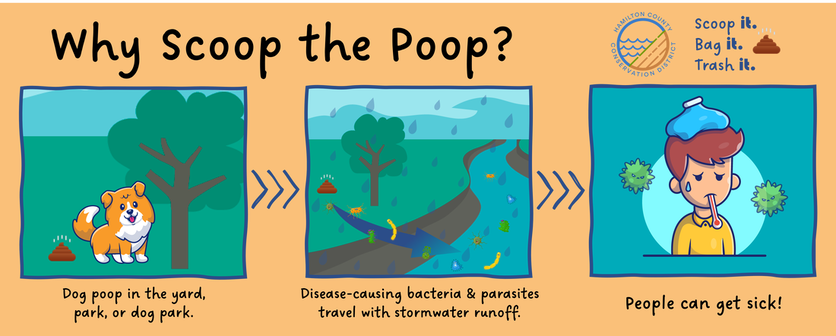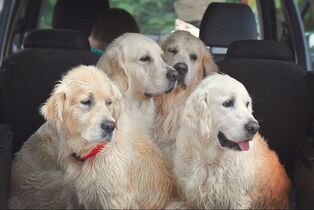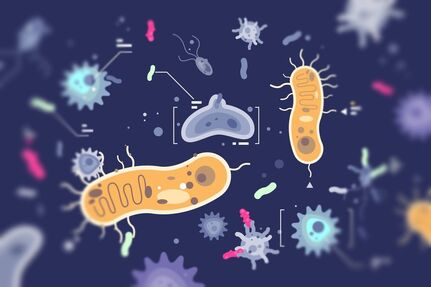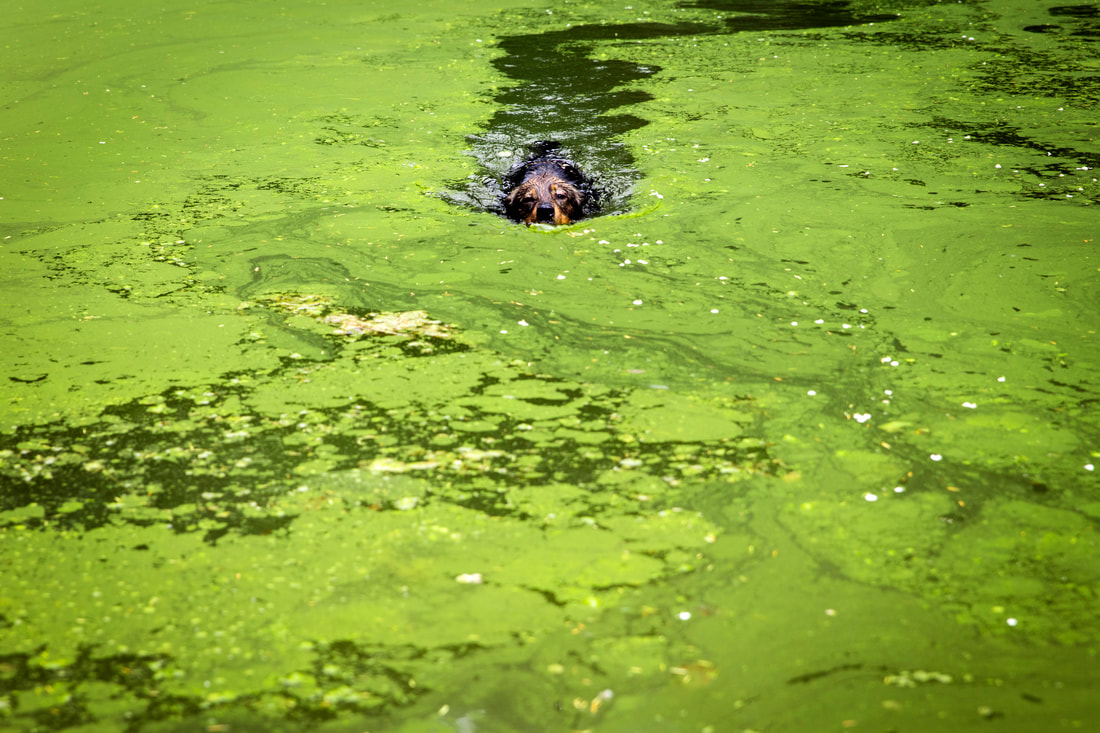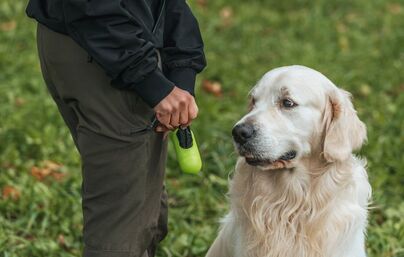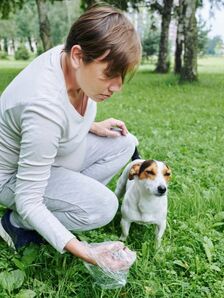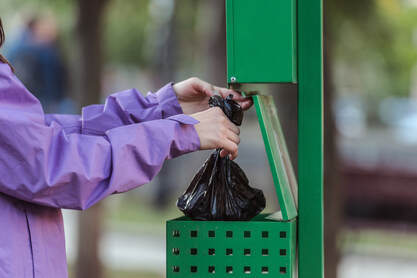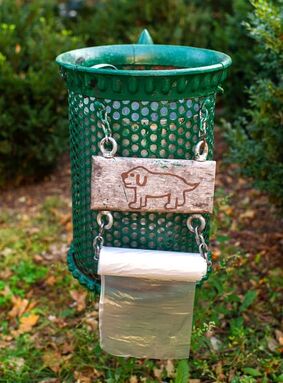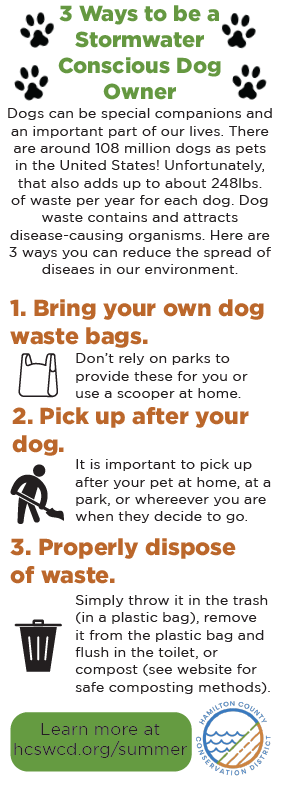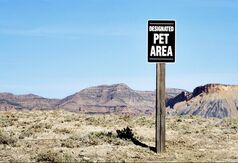|
Why are we concerned about Dog Waste?
No one likes stepping in dog poop, but there are bigger problems than dirty sneakers. According to the EPA, dog poop is as toxic to the environment as a chemical or oil spill. Not only that, but dog waste contains and attracts disease-causing organisms that can be transmitted to wildlife, pets, and humans. Fecal coliform bacteria (such as E.coli), salmonella, roundworms, and giardia are a few well known pathogens.
|
Watch our Summer 'Seasonal Stormwater Series' video to learn more!
Waste Happens!
Problems with too much dog waste.
- Humans: Pet waste contains a variety of potentially dangerous, disease-causing pathogens that can make humans very sick. Decomposing animal waste can make water smelly, green, scummy, and altogether unattractive, not to mention potentially unsafe for swimming and water recreation. Diseases can also be spread to humans from animal waste through the soil or by flies and other decomposer insects. Gardeners and children working or playing in areas where pet waste is not properly managed are most at risk. Pathogens can also contaminate ground water, which is sometimes used as a drinking water supply.
|
|
Best Practices for Residents, Businesses, and Property Managers
|
1. BRING YOUR OWN DOG WASTE BAGS - You can purchase ordinary rolls of plastic bags, or go for the scented or biodegradable versions. Sometimes parks offer bags, but don't rely on these except as a backup. You can also repurpose old grocery bags, used sandwich bags, or virtually any plastic bag. In your yard, you can reduce the plastic bags needed and use a scooper, but this should still be put into a single larger plastic bag for final disposal.
|
|
2. PICK UP AFTER YOUR DOG - Even if you are at a park, waste from carnivores doesn't simply decompose like leaf litter. It requires very high temperatures to kill pathogens and keep them from spreading as the organic components break down. This is also true at home, where you wouldn't want kids running around if waste wasn't picked up, and your neighbors will surely appreciate your efforts. It is important to pick up after your pet no matter where you are when they decide its time to go.
|
|
3. PROPERLY DISPOSE OF WASTE - There are a few options when it comes to getting rid of pet waste. Simply throw it in the trash (in a plastic bag), remove it from the plastic bag and flush in the toilet, or compost. Remember: compost with waste from pets that east meat should NOT be used on home lawns, vegetable, or flower gardens, and MUST be heated to a proper temperature. See below for more information on safely composting pet waste.
|
Ways to Properly Dispose of Dog Waste
| |||||||||
Resources
|
For Businesses &
Property Managers Apartments & Businesses
Horses & Livestock
| ||||||||
|
Office Hours: Monday to Friday 8 am to 4 pm
1325 East Kemper Road, Suite 115 Cincinnati, OH 45246 Phone: (513) 772-7645 The Hamilton County Soil & Water Conservation District is a legal subdivision of the State of Ohio responsible for the conservation of natural resources within Hamilton County, Ohio. We have a special emphasis on soil and water with a focus on assisting landowners in planning and applying conservation practices on the land. HCSWCD is dedicated to the sustainable use of our natural resources and to encouraging positive behavioral changes that produce a higher quality of life for our citizens. The District assists all Hamilton County residents, schools and jurisdictions through our free services and dynamic partnerships that continually provide innovative solutions for the challenges of our region.
|
Talk to Us!
|



